I imagine one of the reasons people cling to their hates so stubbornly is because they sense, once hate is gone, they will be forced to deal with pain.
~ James Baldwin
slip:4a1264.
I imagine one of the reasons people cling to their hates so stubbornly is because they sense, once hate is gone, they will be forced to deal with pain.
~ James Baldwin
slip:4a1264.
People do not seem to realize that their opinion of the world is also a confession of character.
~ Ralph Waldo Emerson
slip:4a1263.
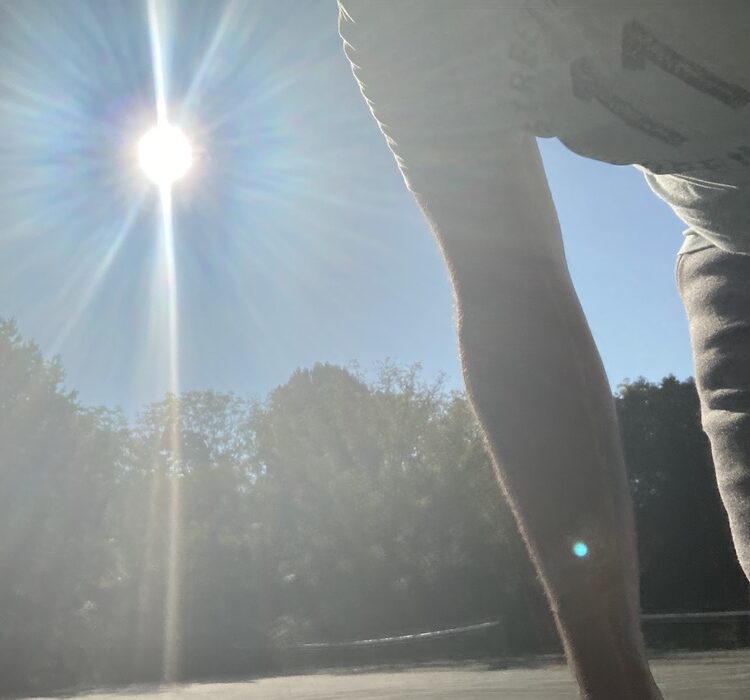
That’s all folks! Thought it was fitting to end this series/countdown with a good QM session at my favorite tennis courts. Keep moving, friends :)
I’m the obsessive type. I’m ordered and process driven to a fault, but not quite (or at least, only rarely) to the point where this affects my ability to function. I’m continuously thinking about things like can I carry something else if I’m going in a certain direction— which is fine when heading out to run errands with the car, but which can stop me in my tracks, and cause me to turn in circles in place, before moving from room to room. I’m also obsessive about doing things. I’m the guy you want physically setting up your complex computer systems and networks—physically arranging everything. I’m the guy who got really into roller skating, bicycling, skiing, Aikido, scratch-building radio-controlled gliders, sailing… there’s a much longer list.
I learned one lesson on my own over the years and many obsessions: Do or do not. I am unable to “spend less time” on an obsession. I have to lean into it, or let go of it. Many of my obsessions paid off either as income or simply being useful to my personal growth. Being able to assess when continuing an obsession is not going to do either of those things for me is a hard-won skill.
But there are some heuristics you can use to guess whether an obsession might be one that matters. For example, it’s more promising if you’re creating something, rather than just consuming something someone else creates. It’s more promising if something you’re interested in is difficult, especially if it’s more difficult for other people than it is for you. And the obsessions of talented people are more likely to be promising. When talented people become interested in random things, they’re not truly random.
But you can never be sure. In fact, here’s an interesting idea that’s also rather alarming if it’s true: it may be that to do great work, you also have to waste a lot of time.
~ Paul Graham from, The Bus Ticket Theory of Genius
slip:4upage2.
Graham’s point about creation is a second lesson about obsession. I agree, and I think an obsession’s being about creation is critical. I stumbled really near this lesson a few months ago when I wrote Being Genuine for Open + Curious where I wrote…
A great conversation is one where we (and our partners) feel the joy of creation, even if that’s while discussing a contentious topic. We have little chance of being creative if we know, or think we know, where things are headed.
Creation is critical. I need to imagine the world differently, and then try to go and create that new world.
ɕ
Everything that needs to be said has already been said. But since no one was listening, everything must be said again.
~ André Gide
slip:4a1262.
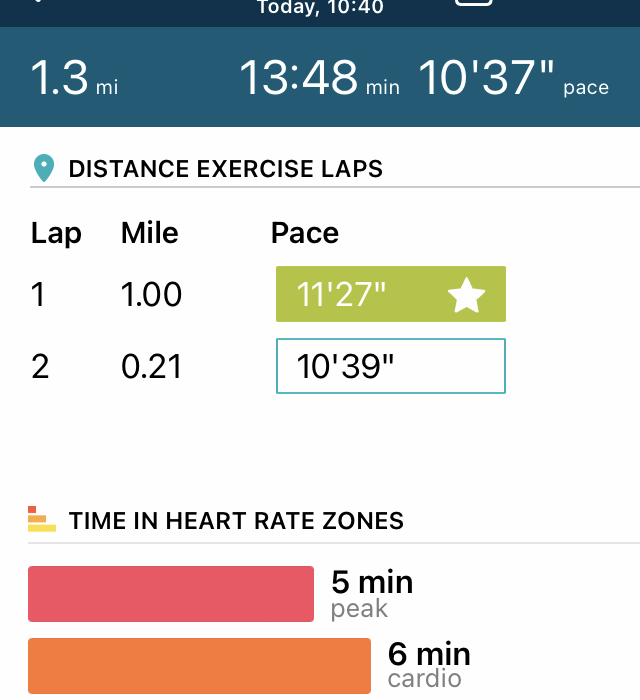
Gak. Slow. On the upside, feeling a little thinner. On the downside… running.
Our world is an ecosystem in which our only real chance at survival as a species is cooperation, community, and care, but it’s being led by people who believe in an ego system, run on competition, power, and self-interest.
~ Austin Kleon
slip:4a1261.

This was a long day, packed full of breaking down the campsite, driving, unpacking and cleanup at home. Simply no energy nor initiative to put in a real workout. ¯\_(ツ)_/¯
I recently realized I’ve wasted 23 years. Way back in 1990 a good friend gave me a CD of MCMXC A.D. by Enigma. It was mind bending, and remains so; to this day, I use it when I really need to zone out and not quite sleep, but rest. It’s an album which I have never once listened to a single track separately. I’ve only ever started at the front and gone straight through.
The other day, I thought: I should see what else Enigma (the brain child of Michael Cretu) may have done since 1990. Followed by my ordering all of the other seven albums. I buy the CDs used, and that means they tend to trickle to my doorstop over a few weeks. Oh. I’ve turned into a lunatic, listening to music far too loud in the house. I’ve recently done this with other artists and suddenly I’m up to my eyeballs in great (in my opinion) music.
So, why 23 years wasted? The Screen Behind the Mirror was released in 2000. I’ve therefore wasted 23 years worth of opportunities to play it.
Basically I had just aged myself by twenty minutes. Two virtual cigarettes, and not even a fading buzz to show for it. I learned nothing, gained nothing, made no friends, impacted the world not at all, did not improve my mood or my capacity to do anything useful. It was marginally enjoyable on some reptile-brain level, sure, but its ultimate result was only to bring me nearer to death. Using my phone like that was pure loss of life — like smoking, except without the benefits.
~ David Cain from, Most Phone Use is a Tragic Loss of Life
slip:4uramo1.
I’ve no idea if you like Enigma. (You can thank me later if you just discovered Enigma and do like it.) But there simply must be some music that you do like! …find which music it is, buy a copy of it in whatever medium you prefer, and spend that twenty minutes—and the next 23 years, if you’re lucky—leaning into that stuff.
ɕ
You didn’t come into this world. You came out of it, like a wave from the ocean.
~ Alan Watts
slip:4a1260.
No image taken. Lots of beach walked upon. I’m calling it a win.
Reading time: About 5 minutes, 1000 words
Get 7 for Sunday in your inbox. → Subscribe here.
This issue is https://7forsunday.com/48
Compassion. The best description (it’s right at the top) and discussion (continues for ~6,000 words) I’ve found is David Gross’s Notes on Compassion.
Empathy, a cycle of skills improvement, developing new attitudes and showing up in service often accompanies the careers of people who get from here to there.
Ambition is insufficient.
~ Seth Godin from, Goals and expectations | Seth’s Blog
slip:4usego1.
There’s a reason the word “understanding” is before “compassion” in my mission. We each have limited resources, and we must be intentional (perhaps not entirely intentional, but certainly not entirely unintentional) with how we act based on compassion. I must first begin to understand myself. Then begin to understand the world, and that includes beginning to understand others.
ɕ
True genius shudders at incompleteness—and usually prefers silence to saying something which is not everything it should be.
~ Edgar Allan Poe
slip:4a1259.
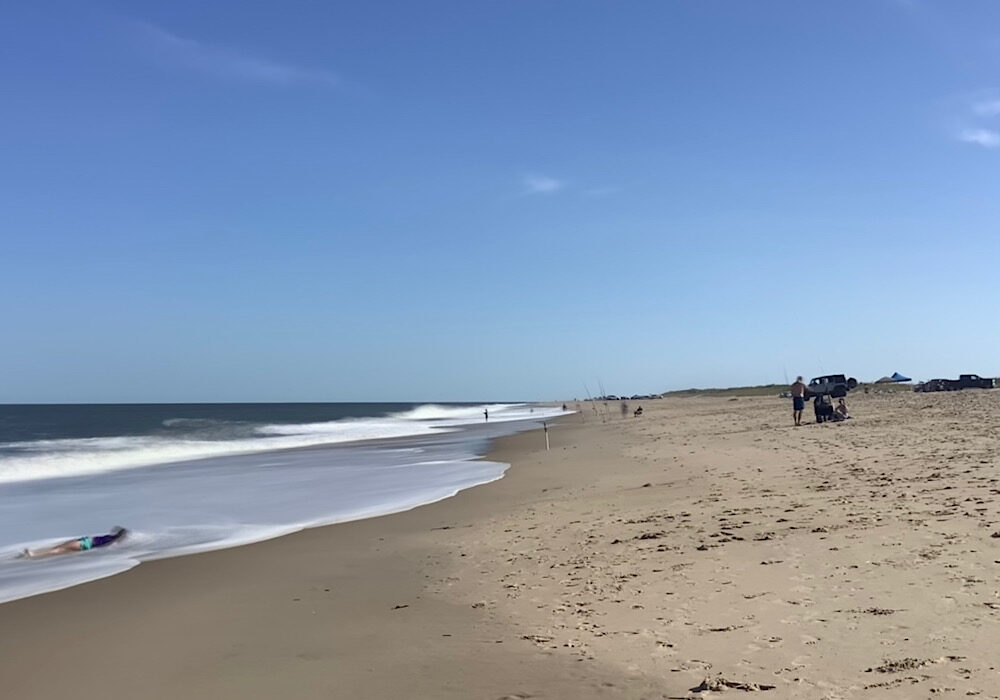
Another walk down this beach. Tomorrow: part three I think.
Only those who do not seek power are qualified to hold it.
~ Plato
slip:4a1258.
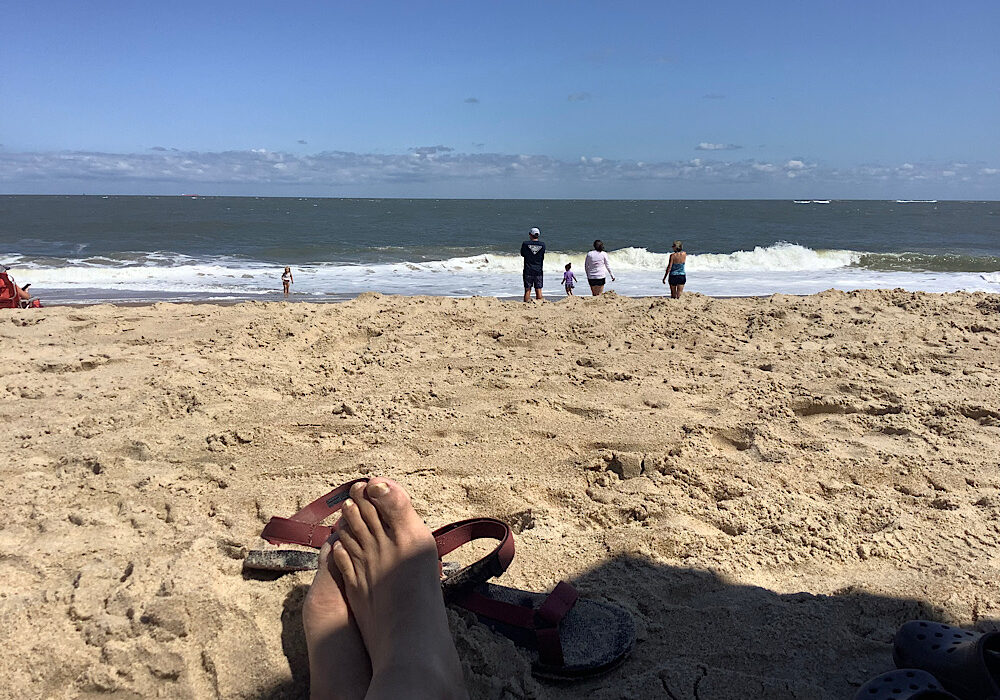
In addition to holding this chair down, walked an hour up and down the beach. Tomorrow: repeat workout.
Clear communication is a sign of understanding. Understanding the idea to be communicated is necessary, but not sufficient, for clear communication. I think in language (I point this out because I wonder if some people don’t think in language) and that leads me to word-smithing. I’m often searching for just the right word or phrase, and then delighted with myself if I find it. Having such labels for larger ideas is a check-point for myself, internally, that I actually have understanding.
Gregory Hays, one of Marcus Aurelius’s best translators, writes in his introduction to Meditations, “If he had to be identified with a particular school, [Stoicism] is surely the one he would have chosen. Yet I suspect that if asked what it was that he studied, his answer would not have been ‘Stoicism’ but simply ‘philosophy.’”
He then notes that in the ancient world, “philosophy” was not perceived the way it is today. It played a much different role. “It was not merely a subject to write or argue about,” Hays writes, “but one that was expected to provide a ‘design for living’—a set of rules to live one’s life by.”
~ Ryan Holiday from, 19 Rules For A Better Life (From Marcus Aurelius) – RyanHoliday.net
slip:4uryru1.
Just because I have a label for something—Stoicism in this case—doesn’t mean I label myself as that. The obvious reason is that my label has a lot of other context attached (in my mind) and chances are little to none that any of that context is present for another person. Labels are useful as shorthand, but only if we have the shared understanding.
Life is short. There are ends—things I have done which others can observe. There are the means I’ve chosen to those ends. And then there’s justification. I don’t have the time (nor the inclination) to explain everything—and frankly no one wants to hear that much from me (or from anyone.) I just find it interesting when I discover something I do (or say or think) for which I’ve not really thought through the labels… thought through the justification.
ɕ
For every complex problem there is an answer that is clear, simple, and wrong.
~ H. L. Mencken
slip:4a1257.
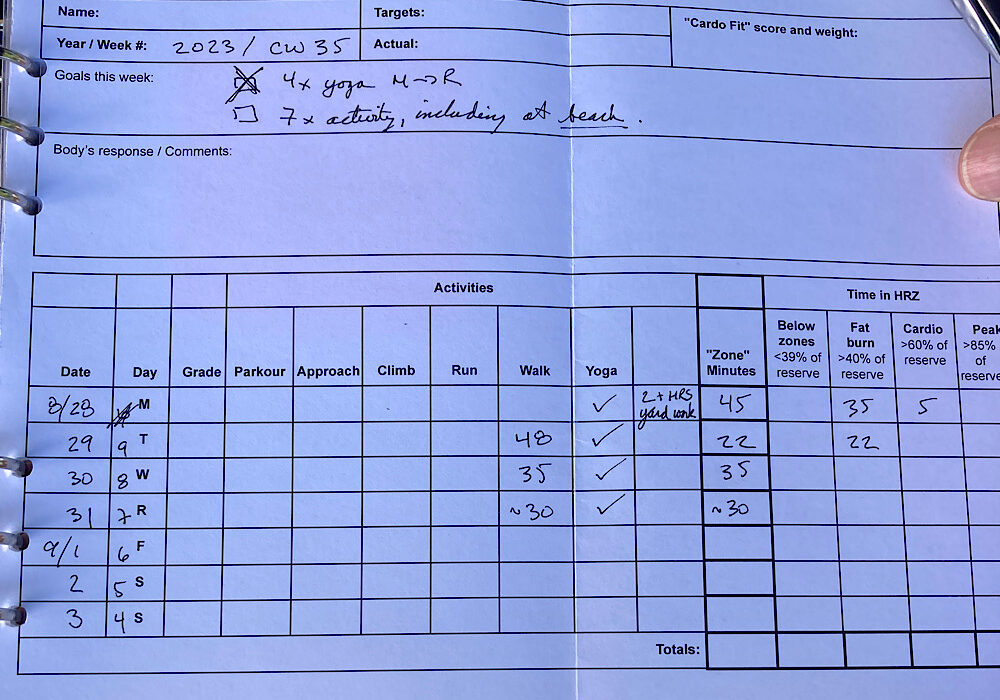
Amazing weather today. Still walking. The part I most dislike about doing these many-day activity challenges is taking a photo. Here’s a photo of the sheets I use to track activity and goals.